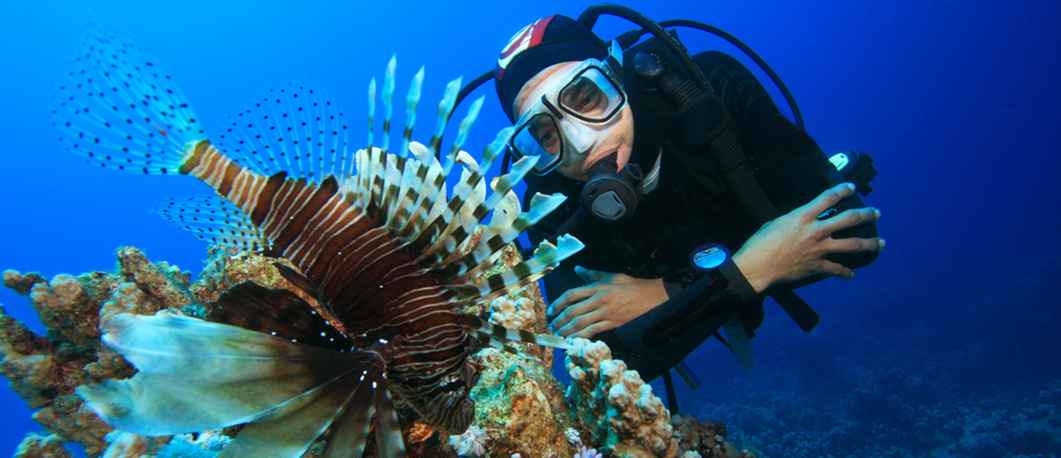Marine Biologist
Who Is A Marine Biologist?
The work of marine biologist is as exciting as it sounds. A marine biologist studies aquatic plants and animals. In fact, at times they study the ocean itself.
You could study an individual aquatic mammal or an entire ecosystem. You could work on understanding the chemical and physical basis of oceans and wetlands. You could also work to understand individual micro-organisms or the deep sea.
As a marine biologist, you would collect water samples from different sources and study the amount of oxygen, carbon dioxide, and such factors in it. You would also analyse the amount of pollution found in water, and find ways to reduce pollution.
Marine biologist is a catch-all term that can refer to an aquatic biologist, wildlife biologist or a marine mammalogist. However, the primary function of all these titles stays the same.
A key part of the job is to get your hypothesis and findings published. You might work for a few weeks gathering the data at sea, but you will spend a year or more on collating the data and writing about it. You also have to keep an eye on research that comes up in the field.
It can be a demanding job but can be very satisfying if you are passionate about it.
Roles & Responsibilities
Collect samples of water and ocean soil to determine the pollution level. For example, you will collect water samples from different water sources. You will check the oxygen and other gas levels which also includes pollution levels.
Come up with ideas on how to reduce pollution levels.
Evaluate any damage to aquatic life. You will analyse why the oxygen concentration in water is less or why the quality of the soil is bad.
Examine the population of the different marine animals. For instance, you would check how many whales are present currently, and compare them against last year’s number. In this way, you would find out if any animals are in danger of dying out.
Prepare reports and training materials for people entering this field.
Prepare Powerpoint presentations for the government on ways to control pollution.
Provide guidelines to protect marine life. These will be presented to politicians and other organisations that are in charge of aquatic animals.
Investigate the adaptations and advantages of marine species and how they might be applied to industrial processes. This is referred to as marine biotechnology.
Take the Mentoria career assessment, to find out how well-suited you are as a Marine Biologist.
Discover your Ideal future
Get expert guidance and mentorship towards your perfect fit.
What Skills Will I Need To Have To Do This Job Well?
As exciting as this sounds, there are some things you’ll need to learn to do the job right:
RESEARCH SKILLS
A marine biologist needs to have good research skills. You will have to conduct extensive research on the aquatic animals, aquatic plants and water bodies. You need to be able to observe the state of marine life. For example, you could gather data on marine organisms like microscopic plants and bacteria. This way you will discover how they affect other large animals in the ocean.
COMMUNICATION SKILLS
You will need to be good at both verbal and written communication skills. You will have to write reports based on your research. You will have to give instructions to animal conservation departments and government bodies on how to protect marine life.
PROBLEM-SOLVING SKILLS
You should possess excellent problem-solving skills. For example, during your research, if you find a particular species of endangered animal, then you must come up with ways to protect it. Pro Tip: You should know to swim or scuba dive confidently as you may have to reach for the bed of the deep sea to analyse the soil there. Certain aquatic animals live deep in the ocean and to observe them, you need to swim deep into the sea.
What Will My Workplace Look Like?
As a marine biologist, you will spend time in an office environment preparing research reports. You will conduct experiments on the samples (water samples and soil samples) collected in a laboratory.
You will collect soil and water samples from the sea and other water bodies like ponds and lakes. You will visit aquariums and seabeds to study aquatic life.
You will also work closely with different NGOs and other social organisations that are responsible for protecting marine life. You will have to work on coastal areas to study marine life during different weather conditions.
What Is My Scope For Career Growth As A Marine Biologist?
At the entry level, you will get lots of training from your seniors. As an intern, you will observe what your seniors are doing. You will be encouraged to learn new skills by working directly with a junior marine assistant and senior marine assistant.
At the junior marine assistant level, you will get to learn from your senior marine assistant! You will be taught to collect data and generate reports. You will assist the senior marine assistant in all his/her tasks.
At the top marine assistant stage, you will be working closely with the main marine biologist. You will accompany him/her on field trips to understand how to analyse marine life and collect data. You will also be with him in the laboratory while he conducts experiments.
As a marine biologist, the entire team will report to you. You will carry out experiments on aquatic life, offer solutions for various marine problems and create reports to be submitted to government bodies for necessary action.
Thinking of a career as a Marine Biologist? Take the Mentoria assessment & talk to our career counsellors to get personalized step-by-step guidance for your future career path.
How Much Will I Get Paid?
The exact number will depend on where you’re working, your education, skill set and internship experience. But we can give you a general idea.
At an entry level, as a junior marine assistant, you can expect to be paid around Rs. 4,00,000 a year.
A senior marine assistant can expect to be paid around Rs. 6,00,000 per year.
A marine biologist with a Ph.D. degree can expect to be paid over Rs 10,00,000 per year.
Okay, I'm sold. This is amazing

STEP 1: Class XI-XII/Junior College
In order to pursue a career as a marine biologist, you have to complete your 12th grade with subjects like Biology, Physics, Chemistry, and Mathematics.

STEP 2: Graduate Degree
You can pursue a Bachelor of Science (B.Sc) in Marine Biology. You could choose to specialize in marine biotechnology, molecular biology, mariculture and ocean farming.

STEP 3: Internship
Doing an internship will help you gain practical knowledge about your role. Some places that you can consider for your internship are colleges, universities and research laboratories.

STEP 4: Land a Job
Now that you have internship experience and the necessary qualifications, your next step is to find and land a job! You have two potential employers: The govt or academia. You can work at a national park or work at saving the marine life in various coastal areas. You can also work in research at a college or university. Congratulations, you are now officially a Marine Biologist!

STEP 5: Postgraduate Degree
A master’s degree or a post-graduation in marine biology will take you to a senior position. After completing your post-graduation, you can complete your Ph.D. or M.Phil in marine biology. You could also study Oceanography.
Sign Up for Mentoria - India’s Most Reliable Career Discovery Platform
Mentoria promises to handhold you during your career discovery journey - from the time you sign up until you get into a career you love.
Discover your Ideal future
Get expert guidance and mentorship towards your perfect fit.


